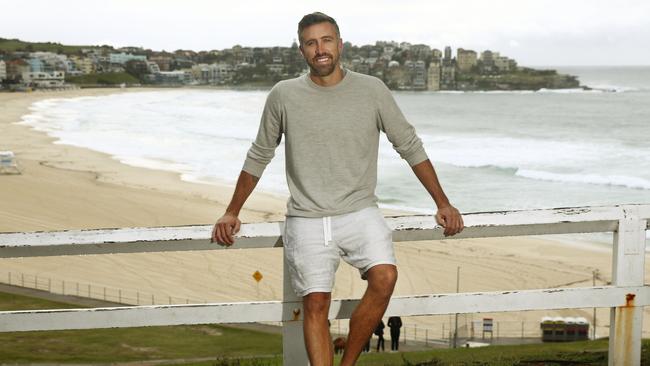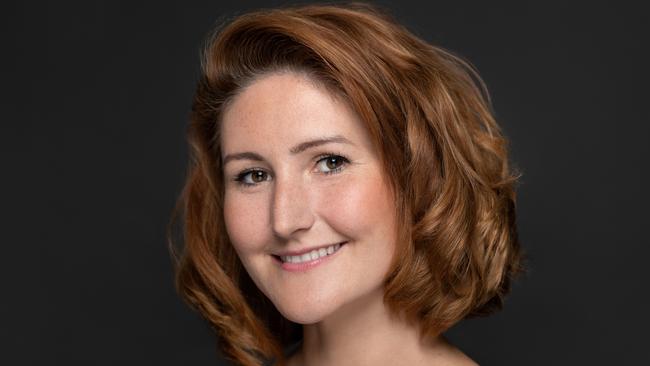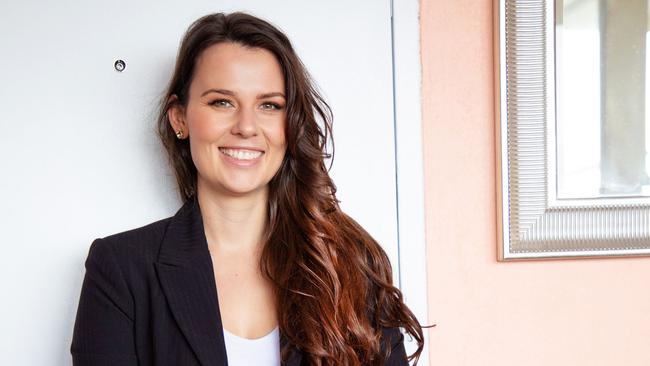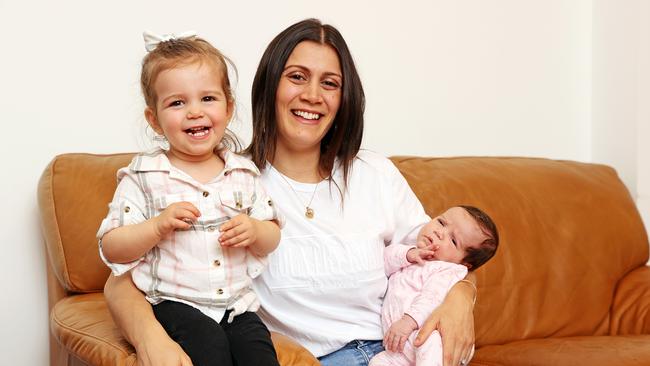How to improve mental health and support loved ones during lockdown
From new parents to students, and even a single friend living alone, different people from all walks of life are stuck in isolation — but experts have revealed the best ways to get through it.

NSW Coronavirus News
Don't miss out on the headlines from NSW Coronavirus News. Followed categories will be added to My News.
They’re the people that need us. The young, the old, the isolated. And as NSW enters its fourth week of the lockdown to help stop the rampant Delta coronavirus strain engulfing the state, our mental health is suffering.
It may be loss of income, the stress of homeschooling, the uncertainty around when it will end, or the loneliness of not being able to see friends and loved ones.
The mental load is larger this lockdown – and experts are worried.
“We know these lockdowns are necessary to control the spread of the virus, but that doesn’t mean it’s easy to deal with,” Tamara Cavenett, President of the Australian Psychological Society, told Saturday Extra.
“Over the next couple of weeks people might expect to feel anxious, frustrated, a low mood and physical and mental exhaustion.
“These have been uncertain times, for an extended period of time, and this can take a toll.”
So with support services at crisis point, how can we help each other?
PRIMARY SCHOOL PUPILS
Whether home schooling or not, being unable to see friends or go to parties is hard on young people, who are acutely aware of the toll the pandemic has taken on their families.
Luke McLeod, founder of Virtual meditation studio Soul Alive, said mindfulness was important – as was fresh air.
“I think it’s important that you still take your children outside to play and exercise,” he said.
“Doing so releases anxious energy that kids often build up when inside for too long.”

Registered psychologist Dr Hannah Korrel said young children need help understanding their emotions.
“Remember you don’t have to solve the problem – just listen to them so you can name the feeling, validate why the child feels so strongly about it and then sit with them in that feeling … follow this with cuddles on the couch,” said Dr Korrel, ambassador for mental fitness charity Gotcha4Life.
Bondi-based psychologist Tara Hurster said if a child was acting up or being ‘naughty’ it was often because they didn’t have the emotional vocabulary to express themselves.
“Things like using puppets to tell a story of how the characters are feeling is a great way to help children to speak up about their feelings in a less intimidating way,” founder of The TARA Clinic said.
“There are great resources such as child yoga, teaching child mindfulness and breathing exercises, as well as great apps like Smiling Mind.”
HSC STUDENTS
With Year 12 about to start HSC trials and senior students forced to learn remotely, an already stressful time, for some, can be too much. A gentle approach can help.
“Remind them to not be too hard on themselves and to take regular breaks and explore new, interesting things to do and learn indoors, like meditation or music,” McLeod recommended.
Dr Korrel said adolescents were generally more in touch with their feelings – but they did need you to listen.
“Resist the urge to solve the problem,” she said.
“Sit with them and listen to what they are feeling. Instead of trying to solve the problem, ask them, ‘how can I help you with this?’ – let them be in control.”
Dr Hurster said encouraging them to speak with their teacher or school counsellor was a great first step.
“And helping young people to take breaks, play a game and get creative is vital.”

Briony Leo, psychologist and head of coaching at relationship self-care app, Relish, said parents should look after themselves and practice self care.
“Kids are very observant, so if you are not coping or are engaging in unhelpful behaviours, this is likely going to impact them – so give yourself a break too and make sure you get lots of rest and support.”
PARENTS WORKING AND HOMESCHOOLING
Both are full-time jobs, just as demanding as each other. Trying to do both, with no reprieve, can feel impossible.
Ms Cavenett, from the Australian Psychological Society, said not to be critical and judge yourself harshly for finding things difficult.

“You may not feel as productive or motivated as usual, and you may have a shorter fuse and be more irritable,” she said.
“Your mental health is connected to your physical health – eat sensibly, drink plenty of water, exercise, and get a full night’s sleep.
“And focus on the present and try not to focus on what you can’t control.”
Remember tempers will be running high and no one is deliberately trying to make things difficult, added Dr Korrel.
“Set up some ground rules at the outset and make sure you have ‘end of the day debriefs’ with the family – what worked, what didn’t work and what can we do better tomorrow.”
Dr Hurster said setting a schedule similar to the school day – with recess and lunch breaks, was helpful.
“Realistically, this is going to be really hard and there is a lot of chatter on social media about alcohol being the best way to handle home schooling,” she said.
“My advice is to remember that the more alcohol you consume and the more regularly you consume it, the less efficiently your brain functions … and can lead to unhelpful coping strategies into the future for yourself and the young person who is learning by watching you cope with stress through alcohol.”
NEW PARENTS
No mother’s group, no trips to the park, no gymbaroo. Lockdown is a lonely and isolating time for parents bringing home newborn babies without the support they would normally have.
“This is where online groups and communities can really help,” McLeod said.
“You could either join a mothers’ Facebook group or even set up your own Instagram or WhatsApp group with your friends and family.”
Mind Your Mate is a Gotcha4Life initiative that will kick off on July 30, International Day of Friendship, to remind everyone to take an active role in helping their mates build their mental fitness. Dr Korrel said that meant identifying a close friend and being someone they can talk to openly and honestly – so no one had to worry alone.
“Survive, survive, survive,” Dr Korrel said.
“Raising a baby is so unbelievably hard — recruit as much help as you need and do whatever you need to do to survive.
“Switch to formula, wear the noise-cancelling headphones, put hubby on nightshift even if he has work the next day, say yes to the mother-in-law who offers to clean the house, say f**k off to the mother-in-law who is passive aggressive – eat all the chocolate.
“Most importantly call friends, call family members, tell them if you are not coping.”
BUSINESS OWNERS
Someone who runs a business has the responsibility of their workers on their shoulders. People have mortgages to keep up, bills to pay and children to care for. If work stops, money stops – and bosses can take that very personally.
Ms Cavenett said it was normal for people to experience ups and downs during lockdown or a pandemic, but friends and family should keep an eye out for significant or prolonged changes in behaviour.
“For example, if your friend is an avid runner but is struggling to find the motivation to exercise, or if someone is usually very social but has become increasingly withdrawn, these can be signs they need additional support,” she said.

“If you’re worried, check in. Remember that you are in physical isolation, not social isolation and keeping connected is a great way to protect yours and your loved ones mental health.”
Dr Hurster said speaking to an accountant about government grants and leaning on their expertise was also important.
“That way, you are feeling clear on what your next steps to take are to ensure that the business continues to operate into the future.”
SUFFERERS
For someone already battling depression or anxiety, being locked away in a pandemic amplifies those feelings of overwhelm.
Cavenett said studies had shown a marked increase in anxiety, depression and PTSD since the pandemic began.
“It’s important to keep connecting with your family and friends, and where possible stick to your usual routine,” she said.
Lockdown could also be a great opportunity for someone who is struggling in this area to explore meditation, Mr McLeod said.
“If you also know of someone who might have struggled with depression in the past, now would be a great time to just check-in with them,” he said.
“Just a simple couple of messages exchanged can do so much.”
Poor hygiene, sleep, eating, communicating less than they normally do are all warnings something is wrong, said Dr Korrel.
“Watch out for warning signs like giving away possessions or calling to say how much you mean to them,” she said.
“Don’t be afraid to ask ‘are you having thoughts of suicide?’.
“If the answer is yes, find out whether they are safe and connect them with Lifeline immediately and if they are unsafe, call an ambulance and the police straight away.”
ELDERLY
Older person isolation is a real thing – and it happened a lot, even before Covid, said Dr Korrel.
“It is important to reach out in a manner that suits them,” she said.
“This might mean calling the landline rather than the stress of trying to get them to hook up to the Wi-Fi and Zoom … communicate their way.
“This could also mean regular letters and packages delivered to their home so they have something to look forward to when mail comes.
“These efforts can mean more than you realise to someone feeling alone.”
Dr Hurster said her own 94-year-old grandmother lives alone and enjoyed FaceTime calls with family on her iPad.
“If you have the financial capacity to, you could also have a little gift or food basket sent around to your grandparent’s home,” she said.
“Things like interesting DVDs or new socks and singlets, perhaps a book that will stimulate their mind and bring them joy each time they pick it up.”

YOUR SINGLE FRIEND WHO LIVES ALONE
Make time for your single friends, encouraged Dr Korrel.
“Make a habit of calling them on your walk around the block each evening,” she said.
“Make plans to play some online games together one-on-one, or in a larger group.”
Dr Hurster said setting and sticking to a routine was important when you live on your own and don’t have regular contact with a partner or close friend.
“Also, if you are considering purchasing a pet, please consider what that decision will mean six months to three years down the track,” she said.
“While it is a great idea in theory to have a cute kitten or puppy to keep you company during lockdown, pets require a lot of responsibility, time and financial investment for the long term.”
Dr Leo said social support was important – and that could mean a lot of things.
“Making sure you have calls with colleagues, maybe making an online lunch date with a friend over FaceTime, doing a TikTok challenge and sharing with friends, or engaging with online hobbies.”
YOUR OUT-OF-WORK FRIEND
Financial pressures of someone who has been forced to stop work but has a family to support can often be too much to handle. Friendship helps.
“I cannot stress this enough – you do not need to solve the problem,” Dr Korrel said.
“You single-handedly cannot stop Covid, or pay their mortgage, but you can be there for them to talk to.
“Offer support where you can, but remember your biggest currency in this situation is your time and energy.
“Phone chats and regular check-in messages can be the difference between someone who is alone in a crisis, versus someone who is supported in a crisis.”
Dr Hurster said financial counsellors could offer guidance around steps to take with regards to bills.
“There also may be some government support available, so speaking with your accountant can also be helpful.”
ISOLATED WITH NEW BABY

Lane Cove mother-of-two Lisa Capozzi had baby Peppi five weeks ago, and said managing a newborn with the couple’s almost two-year-old daughter Airlie in isolation was anything but easy.
“Honestly how I’m feeling comes in waves,” she said.
“I feel depressed that I can’t see my family or friends and for them to meet the new baby, but am thankful for our video and FaceTime chats — it’s their way of checking in and coming for ‘a visit’.
“I was looking forward to meeting new mums at mother’s group and catching up with friends who have also had their second baby but we can’t do that either.
“I’m so thankful for my days where we as a family go for a walk along the beach.
“Being with my husband while walking along the ocean makes me forget about the tough days ahead.”
Originally published as How to improve mental health and support loved ones during lockdown



